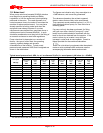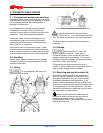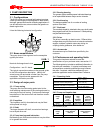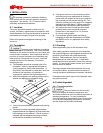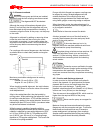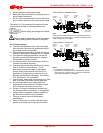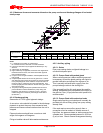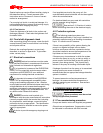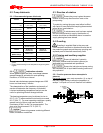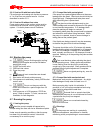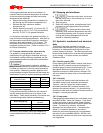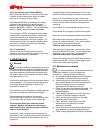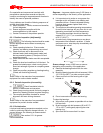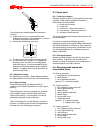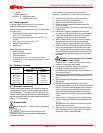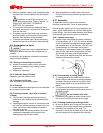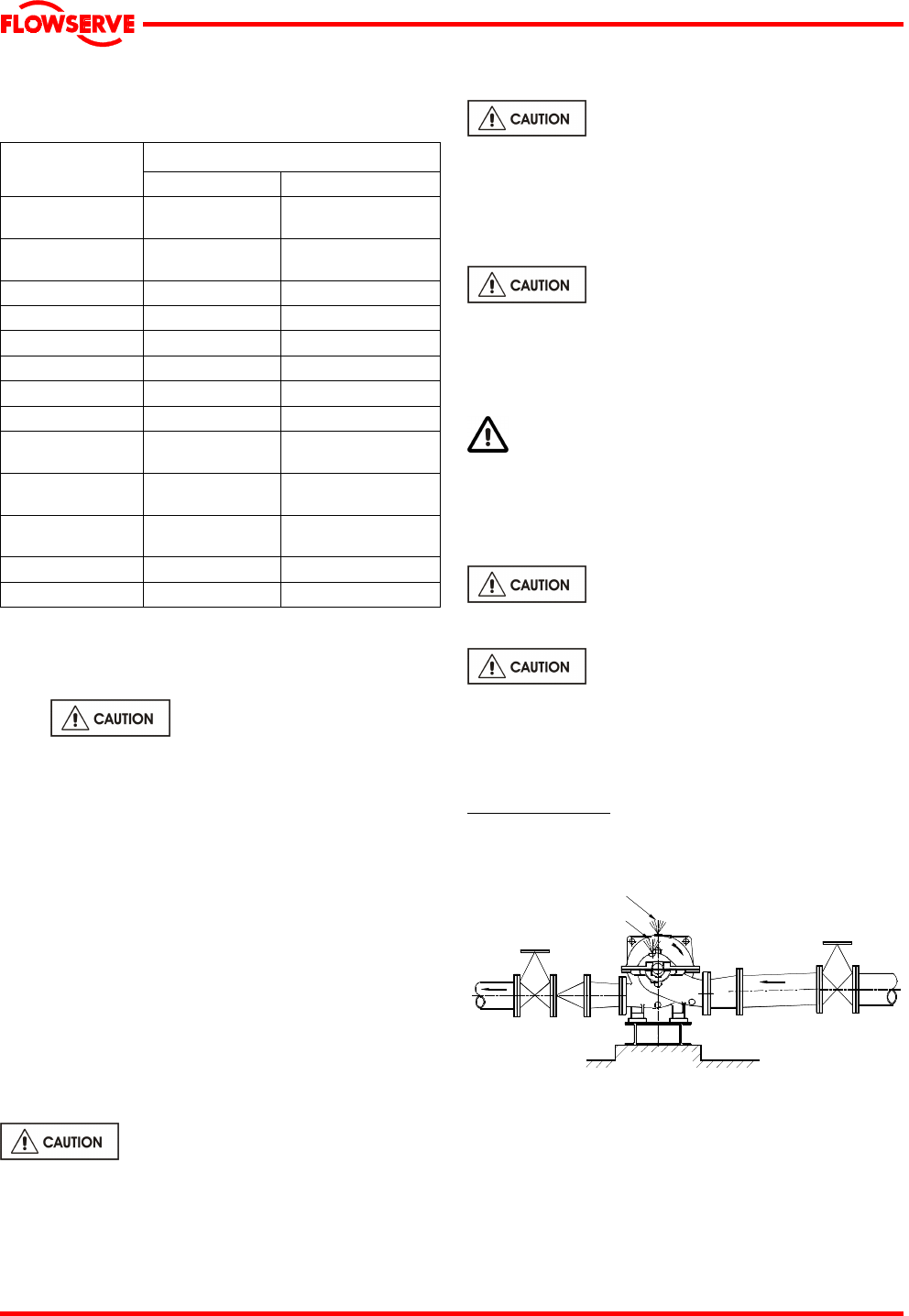
UB USER INSTRUCTIONS ENGLISH 71569247 07-04
Page 17 of 32
®
5.2 Pump lubricants
5.2.1 Recommended grease lubricants
Grease nipples
Grease
NLGI 2 * NLGI 3 **
Temp. range ºC
(ºF)
-20 to +100
(-4 to +212)
-20 to +100
(-4 to +212)
Designation
according to DIN
K2K-20 K2K 30
BP
Energrease LS2 Energrease LS3
DEA
Glissando 20 Glissando 30
Elf
Elfmulti 2 Elfmulti 3
Esso
Beacon 2 Beacon 3
Mobil
Mobilux 2 Mobilux 3
Q8
Rembrandt 2 Rembrandt 3
Shell
Alvania Fett G2
Alvania Fett R2
Alvania R3
Texaco
Multilak 20
Multilak EP2
Multilak 30
Multilak EP3
Wintershall
(BASF Group)
Wiolub LFK 2 -
SKF
LGMT 2 LGMT 3
Silkolene
G55/T G56/T
* NLGI 2 is an alternative grease and is not to be mixed with other
grades.
** Factory packed bearings for the temperature range with grease
nipples.
5.2.2 Lubrication schedule
When grease nipples are fitted, one charge between
grease changes is advisable for most operating
conditions, ie 2 000 hours interval.
Normal intervals between grease changes are 4 000
hours or at least every 6 months.
The characteristics of the installation and severity of
service will determine the frequency of lubrication.
Lubricant and bearing temperature analysis can be
useful in optimising lubricant change intervals.
The bearing temperature may be allowed to rise to
55 °C (131 °F) above ambient but should not exceed
95 °C (204 °F). For most operating conditions a quality
grease having a lithium soap base and NLGI
consistency of No 2 or No 3 is recommended. The
drop point should exceed 175 °C (350 °F).
Never mix greases containing different
bases, thickeners or additives.
5.3 Direction of rotation
Ensure the pump is given the same
rotation as the pump direction arrow cast on the
pump casing.
To avoid dry running the pump must either be filled
with liquid or have the flexible coupling disconnected
before driver is switched on.
If maintenance work has been carried
out to the site's electricity supply, the direction of
rotation should be re-checked as above in case the
supply phasing has been altered.
5.4 Guarding
Guarding is supplied fitted to the pump set.
If this has been removed or disturbed ensure that all
the protective guards around the pump coupling and
exposed parts of the shaft are securely fixed.
5.5 Priming and auxiliary supplies
Ensure all electrical, hydraulic,
pneumatic, sealant and lubrication systems (as
applicable) are connected and operational.
Ensure the inlet pipe and pump casing
are completely full of liquid before starting continuous
duty operation.
5.5.1 Suction pressure above atmospheric
pressure
Horizontal pumps: open vent connection (1) on top of
the pump upper casing to allow the trapped air to
escape. Let liquid run out until free from air bubbles.
(1) Possible
priming
points



